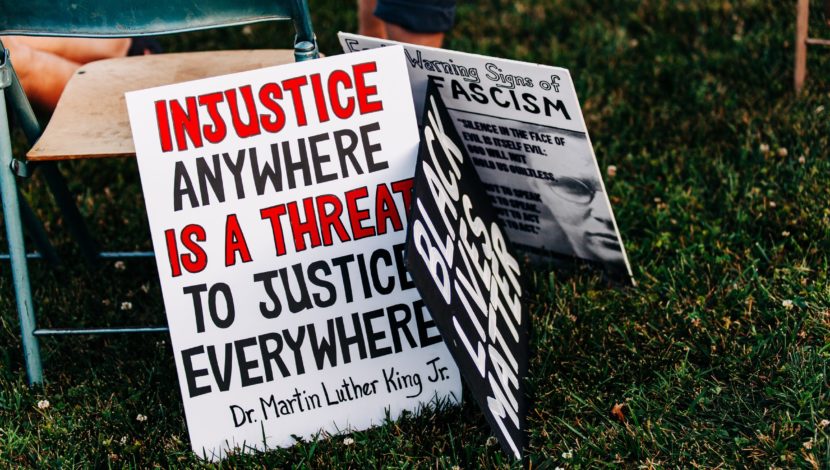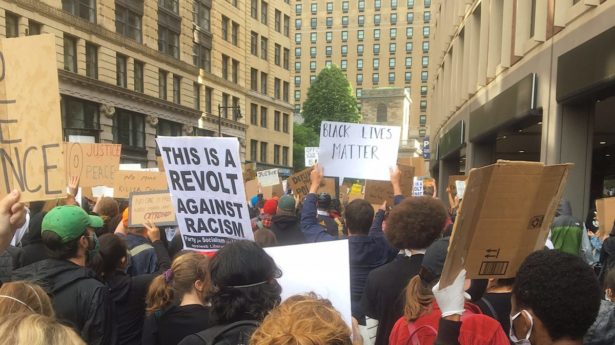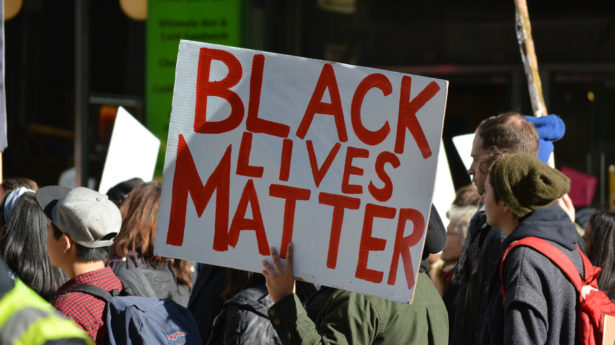The Unitarian Universalist Service Committee advances human rights through grassroots collaborations.
Juneteenth: Transitioning From Where We Were to Where We Want to Be as a Nation

By Mike Givens on June 17, 2021
The institution of slavery has long been considered America’s original sin. The confluence of anti-Black racism, rampant white supremacy, and unabated—and unabashed—imperialism were the fertile soil in North America in the 17th century out of which the heinous, violent, and malignant tendrils of slavery grew to envelop the nation.
On June 19, 1865, General Gordon Granger arrived in Texas and officially declared that slavery was abolished. It was the very end of the Civil War and just a year later, former slaves in Galveston would hold the very first annual celebration of the abolition of slavery. Over the last 156 years, Juneteenth gradually came to be celebrated in states across the nation. Today, 48 states and the District of Columbia celebrate Juneteenth as a holiday and President Biden is signing legislation to make it a federal holiday.
Juneteenth is a collective opportunity for each and every one of us to celebrate the dismantling of an institution that laid the basis for anti-Black racism and oppression from coast to coast. While it’s a time to celebrate, to reflect on the long legacy of slavery and how it’s entwined itself into the ethos of this nation, we must also be vigilant. The capitalist, racist, colonialist, and malicious characteristics of slavery are still woven tightly into so many institutions and systems that we depend on. Consider the following:
- Modern day policing has its origins in slavery. Runaway slaves were considered highly valuable pieces of property and policing formed as a way of not only catching slaves, but preventing revolts. After slavery, many police forces in the south were tasked with promoting racist Jim Crow laws designed to disenfranchise and oppress Black Americans. Our current iteration of the police force is still infused with racist notions and acts.
- Black Americans disproportionately account for a large percentage of the incarcerated in this nation.
- Employment rates are lower for Black Americans, and people of color in general.
- There’s a massive wealth gap between Black and white Americans.
- Our school systems regularly fail Black students and consistently set them up for failure.
Slavery was abolished almost 160 years ago, but the same racist underpinnings that caused it to flourish are alive and well in our education, healthcare, law enforcement, employment, and housing systems and institutions.
Juneteenth is a wonderful opportunity to gaze upon the past and condemn the ugliness that came with treating an entire group of people as chattel. However, the fight for true equality isn’t over.
People like George Floyd show us that anti-Black sentiment still permeates the policing system. The school-to-prison pipeline is a stark illustrator of the disparities that Black youth face when trying to get a quality education. The nation’s poverty rates sadly narrate a story of income and social inequality.
We live in a nation, in a world, where all we must do is look around to see how race and racism circumscribe our lives. Now more than ever, we must come together to repair the harms that we all have collectively experienced because of racism, restore the dignity and power of all Black people, and reimagine our world in a way where racism, bigotry, and hatred are obliterated.
***
About UUSC: Guided by the belief that all people have inherent worth and dignity, UUSC advances human rights globally by partnering with affected communities who are confronting injustice, mobilizing to challenge oppressive systems, and inspiring and sustaining spiritually grounded activism for justice. We invite you to join us in this journey toward realizing a better future!
Image Credit: Unsplash – Heather Mount

